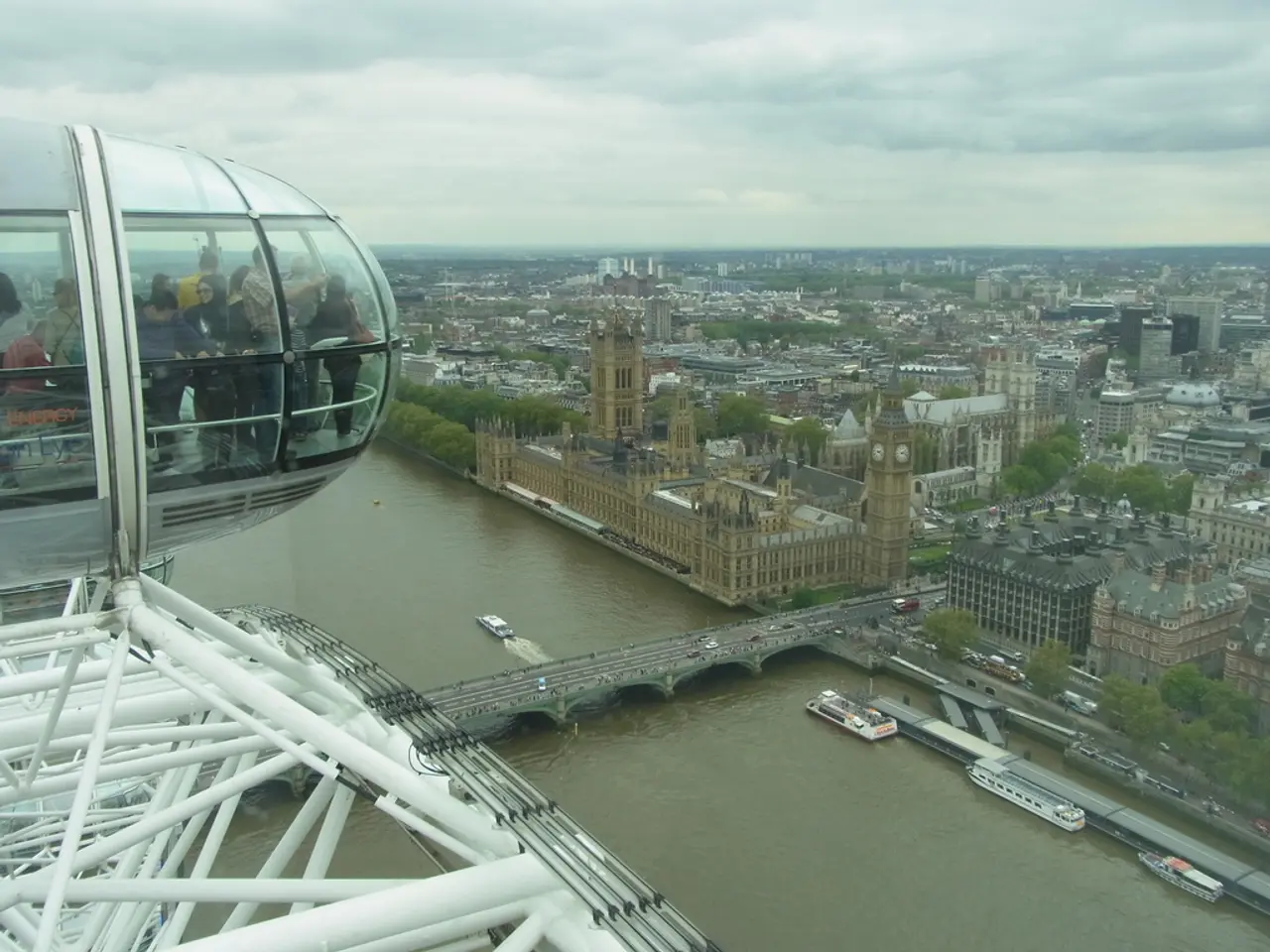Multitudes of Savings Account Holders Braced for 'Invisible Financial Burden'
In the current economic climate, with families trying to build financial resilience amid frozen thresholds and rising living costs, Harriet Guevara, the chief savings officer at Nottingham Building Society, has expressed concern that the government should be doing more to reward and protect savers. This concern is particularly relevant as a significant increase in UK taxpayers is expected to be taxed on their savings interest from 2021 to 2025.
According to the Office for Budget Responsibility, income tax is projected to raise over £330 billion for the 2025 to 2026 period, a substantial increase from the 3 million people taxed in 2021. By 2025, over 3.35 million people are expected to be taxed on their savings interest, a notable increase from previous years.
The extension of the freeze on income thresholds, often referred to as a "stealth tax," has been a contributing factor to this increase. The freeze, which was extended to 2028 by Chancellor Jeremy Hunt in 2022, has led to a larger pool of taxpayers with taxable savings interest.
Guevara has stated that the fresh tax on savings interest highlights a growing and often hidden tax burden on ordinary savers. She is against potential cash ISA reform, arguing that it is the wrong way to drive the government's mission for economic growth and bolstered investment.
The Chancellor has put reforms to cash ISAs 'on hold' following fierce opposition from top banks and building societies. However, the Treasury was thought to be considering reducing the cash ISA allowance to drive investment into stocks and shares. The Building Society Association (BSA) has warned that such a reduction could derail Labour's homebuilding ambition due to a potential knock-on effect of making loans to households and businesses more expensive and harder to come by.
In response to these concerns, potential solutions and mitigating actions include adjusting tax-free thresholds, encouraging tax-efficient saving vehicles, and ensuring savers are well-informed to optimize their finances under changing economic conditions. The government and financial institutions could offer clearer guidance on managing savings tax efficiently, which may help taxpayers adapt their strategies to reduce liabilities.
In conclusion, the increase in UK taxpayers liable for tax on savings interest between 2021 and 2025 is a result of a combination of rising interest rates and tax thresholds that have not always kept pace with interest growth. Effective responses focus on updating allowances, promoting tax-efficient saving options, and ensuring savers are well-informed to optimize their finances under changing economic conditions.
- Harriet Guevara, the chief savings officer at Nottingham Building Society, has expressed concern about the government's lack of action in rewarding and protecting savers, particularly as more UK taxpayers are expected to be taxed on their savings interest from 2021 to 2025.
- The Office for Budget Responsibility predicts that income tax will raise over £330 billion for the 2025 to 2026 period, a substantial increase attributed to the extension of the freeze on income thresholds, often referred to as a "stealth tax."
- Guevara is against potential cash ISA reform, arguing that it could be the wrong way to drive the government's mission for economic growth and bolstered investment, as it might make loans to households and businesses more expensive and harder to come by, potentially derailing Labour's homebuilding ambition.
- In response to these concerns, effective responses may include adjusting tax-free thresholds, encouraging tax-efficient saving vehicles, and ensuring savers are well-informed to optimize their finances under changing economic conditions, through clearer guidance on managing savings tax efficiently.




